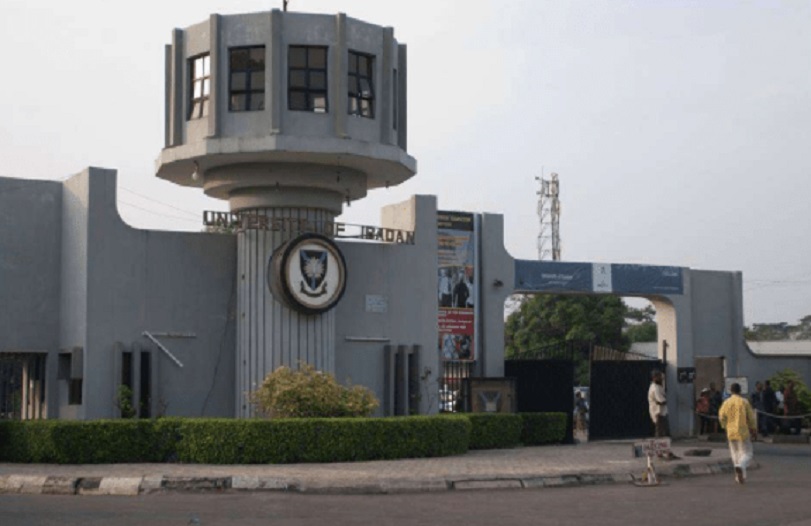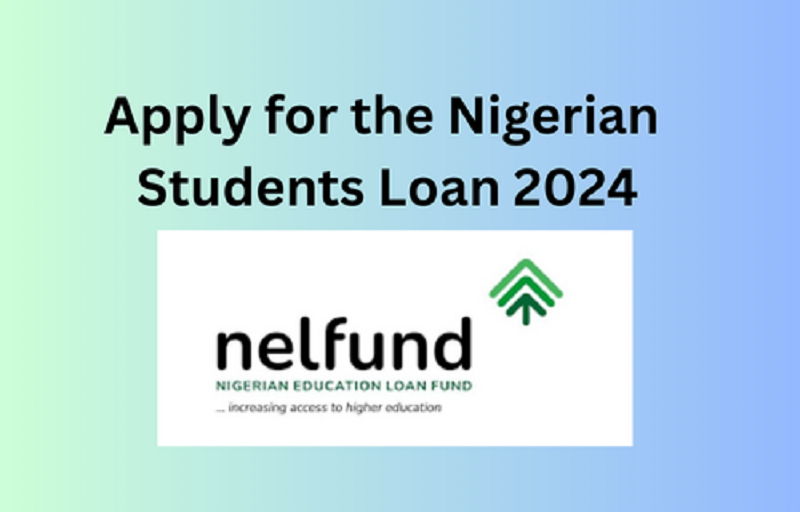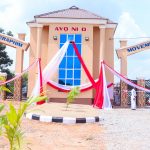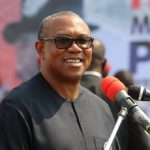Education
Federal Universities and Hike in Fees

By Jerome-Mario Chijioke Utomi
It is pedestrian information that while Nigerians were waiting for the commencement of governance, President Bola Ahmed Tinubu, on the day of his inauguration, precisely on Monday, May 29, 2023, announced the removal of fuel subsidy without putting palliatives in place to assist ameliorate the harsh impact of such policy reversal. Also newsy is that before the dust raised by such a decision could settle, another was up, as the Federal Government again implemented a coordinated but thoughtless hike in fees paid by students of most of the tertiary institutions of higher learning in the country.
What is, however, different is that such harrowing decisions have left varying degrees of unpalatable impacts on Nigerians.
To the students, it has dampened their morale, a state of affairs which visits the nation with a clear and present danger. To their parents, it has brought a combination of dropping spirit and despondency. For the lecturers, they have given up hope on Federal Government’s ability to find sustainable solutions to problems confronting humanity and the nation’s educational sector in particular. The FG’s latest decision and unrelenting inability to promptly respond to the socioeconomic need of Nigerians has adversely turned public affair commentators, development professionals, and public policy watchers into a bunch that keep repeating one topic.
More damaging is that the ongoing hike in fees in the nation’s Federal Government owned universities amply demonstrates a nation that its leaders neither appreciate education as the bedrock of development nor believe in the time-honoured saying that; with sound educational institutions, a country is as good as made -as the institutions will turn out all rounded manpower to continue with the development of the society driven by well thought out ideas, policies, programmes, and projects.
While well-meaning Nigerians need to feel worried as well as collectively work hard to deliver the nation’s public universities from the valleys of the shadow of death, is that in the past decade, nothing seems to be changing for the better in that sector.
Take as an illustration, in my similar intervention, ‘Nigerian Students and Public Universities, ‘ published in October 2019, the piece diligently underlined that there were two forms of challenges confronting tertiary education in the country. The first, as captured in the reference intervention, lays out the dilemma posed by the government’s underfunding of the public universities, which as a consequence, impedes lecturers from carrying out scholarly research, truncates academic calendar with strike actions, lace Nigerian universities with dilapidated and overstretched learning facilities with the universities producing graduates devoid of linkage with the manpower demand by the nation’s industrial sector.
The second challenge stems from the first but centres more particularly on thoughtless demand for fees of varying amounts/ proposed by the school authorities-a development that is financially squeezing the life out of innocent students and their parents.
Despite the dilemma and menace indicated above posing risks to tertiary education survival in Nigeria, coupled with similar calls by other well-meaning Nigerians, development experts and stakeholders in the nation’s education sector, it remains a painful narrative that instead of the challenges abating, the Federal government allowed it to blossom. In fact, it has morphed from bad to worse. And except the government commits its resources to get to the root of the challenge, the potential consequence could be higher than that of other challenges currently ravaging the nation.
This is not the only concern here.
A while ago, a student in one of the universities in Nigeria’s south-south geopolitical zone noted in frustration that inexplicable fees paid by students have gotten so complicated that the students can no longer spot the ones that are authentic or otherwise. And further lamented that despite these fees, student hostels have been overtaken by Bedbugs and bushes, making it convivial for reptiles/rodents to struggle for spaces with students, and left with neither portable water nor electricity as a result of the school authority’s inability to power the school generator or settle their indebtedness to the Electricity Distribution Company (DISCO) that services the region.
The above example is not to suggest that such is limited to the school in question, as no public university in the country can boast of clean hands. The challenge may exist in overt and glaring forms within the school I question but exists in a hidden and subtle manner in others. Looking at commentaries, it’s obvious that there is no end to the list of such Universities. This is a verifiable fact.
By analyzing what goes on in each of these schools, clearly presents a clumsy and discomforting attitude to the students and their parents and provides answers as to why many of our youths- those that will provide the future leadership of the country are on the streets instead of school.
This leads to another observation; the demand by universities in Nigeria of unthinkable and varying amounts as acceptance fees from new students- a practice that crushes/squeezes the life out of so many parents.
With this appealing awareness in mind, one may be tempted to ask what the acceptance fee signifies. Why must students pay the acceptance fee for an admission they voluntarily expressed interest in and paid the examination fees? In fact, it may not be hasty or considered illogical to conclude that in a situation a candidate is not willing to accept admission, he may not, in the first instance, border on registering or participating in the examination.
Regardless of what others may say, it is important to recognize that educational development, particularly at the tertiary level, is not what the government alone can shoulder as it is both capital intensive and requires productive collaboration. It, however, remains a worrying development that while the privately-owned universities like sheep have gone their ways with astronomical charges as school fees, despite the obviousness of gaps and incongruencies between their fees and the quality of education they impact on the children, the public universities which supposed to provide palliatives now behave as if it is a competition with their private counterparts over fees.
For me, there are reasons why this worry expressed should not be described as unfounded or treated with levity.
First, these harsh economic policies are coming at a time when the FG/state has both visibly and persistently manifested gross incapacity to implement living wages across the country and in a season when the unemployment rate in the country is at an all-time high.
What if the parents of these students were among those caught up by the minimum wage cobweb, unemployment or underemployment at the very least? How can they cope with these arbitrary fees currently demanded by federal universities?
To move this nation forward, we need to recognize that a sound educational sector and sustained infrastructural development remain the spine. We must learn that nations such as the Jews progressed because they possessed a tradition of education combined with social and political action. They enthroned education and sacrificed as a nation to get it.
We must, therefore, as a nation, make quality but subsidized education a human right that will be accessible to all Nigerians irrespective of tribe/ethnicity, sex, religion or creed. And develop the political will to fund education in compliance with the United Nations Educational Scientific and Cultural Organization’s (UNESCO) budgetary recommendation.
Finally, in the words of Kenneth Lowande, a Professor at the University of Michigan, monitoring unelected officials and implementing public policies should be the chief concern of leaders in every democratic government. By overseeing that process, elected officials aim to prevent shirking, corruption, performance failures and policy drift in bureaucracy. Obviously, it will be highly rewarding if the Federal Government monitors and implements such policies in public universities.
Utomi Jerome-Mario is the Programme Coordinator (Media and Policy) at Social and Economic Justice Advocacy (SEJA), Lagos. He can be reached via [email protected]/08032725374
Education
Saint Riman of Adedokun International Schools Ota Wins InterswitchSPAK 7.0

By Modupe Gbadeyanka
A student of Adedokun International Schools, Ota, Ogun State, Saint Riman, has emerged as the overall winner of the InterswitchSPAK National Science Competition.
The 16-year-old student was crowned Nigeria’s Best STEM Student, receiving a N15 million scholarship in the InterswitchSPAK 7.0 grand finale.
InterswitchSPAK is the flagship Corporate Social Responsibility initiative of Interswitch, one of Africa’s leading integrated payments and digital commerce companies.
The programme is Nigeria’s largest STEM competition for senior secondary school students. It concluded on a high note after months of nationwide assessments, problem-solving challenges, and competitive stages involving over 18,000 registered participants.
Business Post reports that David Okorie of Caleb International College, Magodo, Lagos State, was the first runner-up, getting N10 million in scholarship, while David Solomonezemma of Deeper Life High School, Enugu State, was the second runner-up, bagging a N5 million scholarship. All winners also received brand-new laptops in addition to other exciting prizes.
While presenting the awards, the Group Marketing and Communications for Interswitch, Ms Cherry Eromosele, commended the students for their discipline, resilience, and exceptional intellectual performance.
“InterswitchSPAK was created to inspire and reward excellence in STEM education while equipping young Africans with the skills to tackle real-world challenges.
“These winners have demonstrated remarkable promise, and by supporting their education, we are reaffirming our belief in the power of young people to shape Africa’s future through innovation and science,” Ms Eromosele said.
Beyond the top three winners, other finalists received brand new laptops and exciting cash rewards for outstanding performance, alongside their teachers who were also celebrated and rewarded for their critical role in nurturing talent. This holistic approach reinforces Interswitch’s commitment to sustainable educational development through collaboration between students, educators, and institutions.
Now in its seventh year, InterswitchSPAK has become a highly respected platform, serving as a pipeline for discovering, developing, and empowering the next generation of scientists, engineers, technologists, and innovators. Through this initiative, Interswitch continues to highlight how strategic private sector investment in education can drive innovation, reward merit, and contribute meaningfully to national development.
The successful conclusion of InterswitchSPAK 7.0 underscores Interswitch’s leadership in advancing STEM education as a catalyst for socio-economic growth, preparing Nigerian students to compete confidently on the global stage while shaping Africa’s innovation-driven future.
Education
Zurich-based Sparkli Raises $5m for Generative Learning Platform

By Dipo Olowookere
A Zurich-based anti-chatbot edtech firm, Sparkli, has secured about $5 million pre-seed round for its generative learning engine designed to turn screen time into active learning expeditions that foster agency, curiosity, and future-ready skills.
The pre-seed round will allow Sparkli to scale its generative learning engine and prepare for a private beta launch in January 2026. The company is currently validating its platform through a strategic pilot with one of the world’s largest private school groups.
This partnership provides Sparkli with a powerful testing ground across a network of more than 100 schools and over 100,000 students.
Sparkli transforms the curiosities of children into multi-disciplinary, real-life journeys that foster future-ready skills, including technology, design thinking, sustainability, financial literacy, entrepreneurship, emotional intelligence, and global awareness.
The company is already positioning itself to disrupt the $7 trillion global education market, a sector widely predicted to be one of the most significant use cases for artificial intelligence.
Its approach is shaped by three shifts essential for modern childhood education, a strategy designed to solve the ‘Agency and Curiosity Gap’. First, it forces a Velocity Shift by moving away from static curriculums to real-time relevance where children explore new topics the moment they emerge.
Second, it drives an Engagement Shift by replacing the dry ‘AI chatbot wall of text’ and passive screen time (watching videos, playing video games) with a multimodal playground of visuals, voice, and playable simulations. This turns consumption into active, gamified inquiry rooted in educational value.
Finally, Sparkli prioritizes a Skills Shift that focuses on capabilities such as creativity and complex problem solving rather than memorization.
“Our goal is to build agency in the next generation. Children learn by exploring, making choices, asking questions, and discovering what inspires them. Sparkli turns screen time into a place where curiosity grows rather than fades,” the chief executive of Sparkli, Mr Lax Poojary, said.
One of the funders, Lukas Weder of Founderful, said, “Sparkli represents a step change in how children can interact with knowledge.
“The team is applying high caliber engineering and thoughtful pedagogy to a space that desperately needs innovation. Their traction with schools shows a real appetite for tools that foster curiosity and agency rather than passive consumption.”
Education
NELFUND Disburses N161.97bn to 864,798 Students in 500 Days

By Adedapo Adesanya
The Nigerian Education Loan Fund (NELFUND) has disbursed N161.97 billion to 864,798 students nationwide since the inauguration of its student loan portal on July 17, 2024, as part of efforts to expand access to tertiary education.
The Managing Director of NELFUND, Mr Akintunde Sawyerr, while briefing journalists on the progress, impact and challenges of the scheme under the President Bola Tinubu’s Renewed Hope Agenda, said it was established to ensure that no Nigerian student was denied education because of financial constraints.
According to him, the fund has so far received 1,361,011 loan applications from students across the country.
He explained that out of the N161.97 billion disbursed, N89.94 billion was paid directly to 263 tertiary institutions to cover tuition and institutional charges, while N72.03 billion was paid to students as upkeep allowances.
“As at today, 1,361,011 applications have been received, 864,798 students have so far benefited from the loan scheme, and total disbursement stands at N161.97 billion.
“These includes N89.94 billion paid directly to 263 tertiary institutions for tuition and institutional fees, and N72.03 billion paid directly to students as upkeep allowances,” he said.
He noted that the figures represented tangible impact on students and families, describing them as evidence of barriers being removed and opportunities being created.
The NELFUND boss said the agency, had over the last year, embarked on extensive sensitisation across tertiary institutions to improve awareness and access to the scheme.
He added that the focus would now expand to parents, guardians, traditional rulers and faith-based institutions.
He said this new approach was to deepen public understanding and trust in the scheme.
“Over the last year, NELFUND has undertaken extensive sensitisation and engagement across tertiary institutions nationwide.
“We have worked directly with students, school authorities, and stakeholders to drive awareness, understanding, and access to the scheme.
“However, as we move into this new phase, we recognise that deepening impact requires broader engagement.
“So this year, our focus will expand to another very important group within the NELFUND ecosystem,” he said.
On upkeep payments, the managing director disclosed that a reconciliation exercise carried out after the 2024/2025 academic session revealed that 11,685 students had outstanding upkeep payments amounting to N927.98 million.
He clarified that the outstanding payments were not due to withheld funds or policy failure, but resulted from technical and operational issues.
He said such issues include network downtime, failed transactions and unvalidated bank account details.
He also said that the NELFUND management had approved a one-time reconciliation process to resolve the cases, including direct engagement with affected students.
He further said that a grace period for updating bank details, multi-layer validation and prompt payment upon verification had also been approved.
Responding to questions on sustainability, Mr Sawyerr said that the amended student loan law removal of guarantor requirements, inclusion of upkeep allowances and the ability to raise and invest funds were key elements supporting long-term sustainability.
He added that NELFUND was also exploring partnerships with philanthropists, corporate organisations and government agencies, citing a N20 billion collaboration with the Ministry of Education on Technical and Vocational Education and Training (TVET) as an example.
Also speaking, the Executive Director of Operations, NELFUND, Mr Mustapha Iyal, said that outstanding upkeep represented about 11,000 out of more than 400,000 beneficiaries in the 2024/2025 session.
Mr Iyal said NELFUND had contacted institutions to validate student data, noting that many of the issues arose from incorrect information supplied by applicants.
According to him, feedback has been received from over 100 institutions, and payment of the outstanding upkeep allowances is expected to commence shortly.
He also disclosed that applications for the 2025/2026 academic session began in November, 2025, with over 200 institutions submitting updated data.
He said about 280,000 applications had been received from those institutions, out of which loans had already been disbursed to more than 150,000 students.
He added that upkeep payments for the new session would begin in January, explaining that upkeep allowances were tied to active academic sessions and required fresh applications each session.
On loan repayment, Mr Iyal said repayment had already commenced, with some beneficiaries who had graduated and secured employment beginning to repay their loans.
-

 Feature/OPED6 years ago
Feature/OPED6 years agoDavos was Different this year
-
Travel/Tourism9 years ago
Lagos Seals Western Lodge Hotel In Ikorodu
-

 Showbiz3 years ago
Showbiz3 years agoEstranged Lover Releases Videos of Empress Njamah Bathing
-

 Banking8 years ago
Banking8 years agoSort Codes of GTBank Branches in Nigeria
-

 Economy3 years ago
Economy3 years agoSubsidy Removal: CNG at N130 Per Litre Cheaper Than Petrol—IPMAN
-

 Banking3 years ago
Banking3 years agoSort Codes of UBA Branches in Nigeria
-

 Banking3 years ago
Banking3 years agoFirst Bank Announces Planned Downtime
-

 Sports3 years ago
Sports3 years agoHighest Paid Nigerian Footballer – How Much Do Nigerian Footballers Earn












